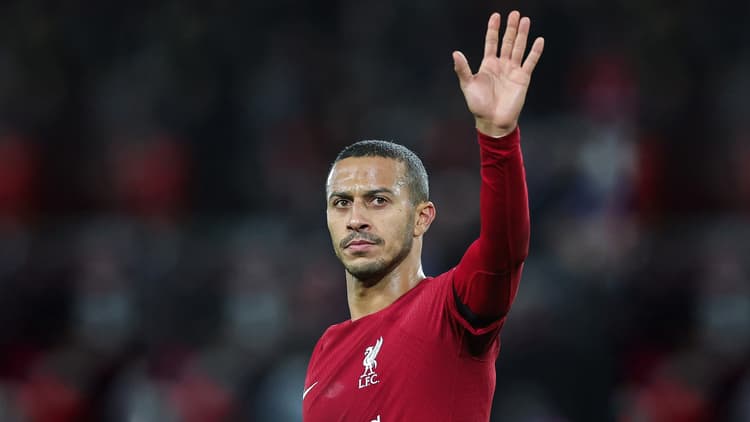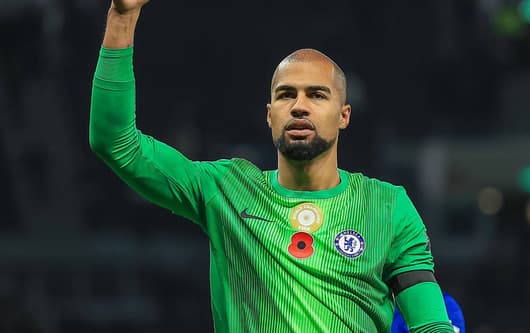-
News
- 8 hours ago
Liverpool revenue: How much they earn from TV, matchday and commercial

The 2023 version of the Deloitte Money List has been released and it shows the various sources of revenue for the top 20 clubs in world football.
The list is dominated by the Premier League, with 11 of its 20 entrants coming from there, while 16 of the top 30 are based in England.
HOW DO LIVERPOOL EARN REVENUE?
Liverpool’s revenue generation comes from three distinct places; matchday revenue, broadcast revenue and commercial revenue. These three areas combine to create a club’s overall revenue for a season.
READ MORE: How much do Man Utd earn from TV, matchday and commercial revenue?
READ MORE: How much do Arsenal earn from TV, matchday and commercial revenue?
READ MORE: Chelsea revenue: How much they earn from TV, matchday and commercial?
WHAT IS MATCHDAY REVENUE?
Matchday revenue consists of all revenue generated on a matchday. This includes ticket sales, food and merchandise, as well as hospitality offerings. Liverpool have worked hard to increase the capacity of Anfield in recent years and it’s reflected in the increase of matchday revenue, even taking into account the decrease as a result of the coronavirus crisis.
Their run deep into three cup competitions (including the Champions League) also helped but their €112m total in 2022 represents almost a 20% upgrade on their best-ever matchday revenue season.

Further expansion is planned in the future at Anfield as they look to close the gap on rivals Manchester United, who they have already surpassed in this year’s list, but Liverpool are definitely heading in the correct direction for this revenue metric.
| Year | Matchday Revenue (€m) |
|---|---|
| 2015 | 93 |
| 2016 | 93 |
| 2017 | 76 |
| 2018 | 92 |
| 2019 | 95 |
| 2020 | 83 |
| 2021 | 8 |
| 2022 | 112 |
WHAT IS COMMERCIAL REVENUE?
Commercial revenue is everything related to the overall sponsorship and brand activities of a football club. In the modern game this takes on many additional forms. Previously the only additional commercial revenue would be related to in-stadium advertising and perhaps a shirt sponsor arrangement.
But now various parts of real estate attached to the club can be monetised; everything from sleeve sponsors, to sponsors of the stadiums themselves, commercial managers are looking at any possible way to successfully generate revenue by building relationships with a whole host of brands.

Liverpool’s commercial arm has taken a gigantic leap largely because of the success of the team on the pitch; they won two cups, ran Man City close in the league and lost the Champions League final to Real Madrid.
All of this has contributed to record revenues and allowed them to commercial to levels never seen before.
| Year | Commercial Revenue (€m) |
|---|---|
| 2015 | 149 |
| 2016 | 163 |
| 2017 | 163 |
| 2018 | 192 |
| 2019 | 210 |
| 2020 | 199 |
| 2021 | 176 |
| 2022 | 209 |
WHAT IS BROADCASTING REVENUE?
Broadcasting revenue relates to monies earned by the negotiation of showing a club’s matches domestically and internationally in each competition they are entered into.
Domestic TV deals are the most lucrative, with the country in which the league is played happy to pay inflated fees to fill their broadcast schedules with as many football matches as possible. Leagues are also free to negotiate with individual countries and regions to show their matches in that territory.

The size of the foreign deals are directly correlated to how popular the league is in that market. Liverpool are fortunate to have a number of high value contracts in hundreds of world markets, with notable deals in the USA, Scandinavia and Asia. The EPL’s marketability abroad has made clubs like Liverpool wealthy, with the expansion of that potential likely to continue for years to come.
Liverpool’s Champions League final run, plus their consistent level of success in the competition and the domestic cups, means that they have been actively competing deep in all the competitions and therefore raking in the maximum possible broadcasting revenue available. This has left Liverpool in a supremely strong revenue position across all metrics of the business.
| Year | Broadcasting Revenue (€m) |
|---|---|
| 2015 | 178 |
| 2016 | 191 |
| 2017 | 189 |
| 2018 | 231 |
| 2019 | 227 |
| 2020 | 208 |
| 2021 | 309 |
| 2022 | 277 |
TOTAL REVENUE
Liverpool’s move ahead of Manchester United for the first time shows that smart management coupled with on-pitch success can create an earning giant within the sport. Liverpool’s global brand helps in this regard, and allows them to maximise that on-pitch success with improved commercial agreements.
| Year | Total Revenue (€m) | Money List Position |
|---|---|---|
| 2018 | 506 | 7th |
| 2019 | 513 | 7th |
| 2020 | 470 | 5th |
| 2021 | 493 | 7th |
| 2022 | 568 | 3rd |



















